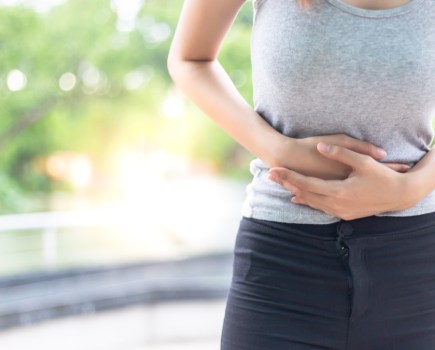With our increasingly hectic modern lifestyles, understanding the risks associated with high blood pressure is crucial, as it can stealthily wreak havoc on your heart health and overall well-being. Here, Yvonne Martin delves into the symptoms, treatments and prevention of high blood pressure.
High blood pressure is a condition that causes the blood in your body to create too much pressure on your blood vessels. Although you can have it and not experience any symptoms, it’s important to take it seriously because it can lead to some other serious health problems including heart attack and stroke.
There are many lifestyle changes you can make to help prevent it – and these will also help prevent other health conditions too!
It’s easy to diagnose if you go to a health professional for a blood pressure test and there are a range of treatments. These include lifestyle changes, but there are also a range of medications.
Read on to find out more about the condition. However, this is no substitute for medical advice, so if you think you may have high blood pressure, or you are in an at-risk group, it is important that you see your GP to get a diagnosis and, if you do have it, to talk through the possible treatments and find the right solution for you.
What is high blood pressure?
This is when your blood is exerting too much pressure on the walls of your blood vessels as it is pumped around your body.
This pressure places a strain on your heart and your blood vessels. If you have high blood pressure over a period of time – also referred to as hypertension – you are at greater risk of a number of other health issues, including having a heart attack or stroke or suffering kidney disease. It is also linked to vascular dementia.
What are the causes?
It is not always clear what has caused the issue but there are some risk factors to take into account. According to the NHS website you could be at greater risk if the following apply:
- You are overweight
- You consume too much salt
- You don’t eat enough fruit and veg
- You drink too many caffeine-based drinks or too much alcohol
- You smoke
- You sleep poorly
- You live in a deprived area
- You are over 65
- You have a family history of the condition
- You are of black African or black Caribbean descent.
Certain other conditions can lead to high blood pressure, and these include:
- Diabetes
- Kidney disease
- Obstructive sleep apnoea.
Certain medications can increase your blood pressure, including steroids and the contraceptive pill. Cocaine and amphetamines can also increase your blood pressure.
Many people think that stress will give them high blood pressure. However, while a stressful situation can affect it, it returns to normal once the situation has passed. That’s not to say that stress is no problem at all, if you start to deal with stress by turning to drinking more alcohol, smoking, or over-eating, then this will have knock-on effects on your health, including your blood pressure.
What are the symptoms?
You can have it and experience no symptoms at all. For this reason, you could have it and have no inkling that anything is wrong. However, Blood Pressure UK recommends that if you notice symptoms such as bloodshot eyes, you’re getting headaches, or feel unwell, to get it checked out by your GP.
Getting a diagnosis
So if you have no symptoms, how would you know if you have high blood pressure? To be sure, have it tested by a health professional. Currently, adults over 40 are advised to get their blood pressure checked at least every five years, even if they have no symptoms.
It is measured by putting an inflatable cuff around your upper arm. The cuff is inflated and then deflated and the machine reads and displays the results, which come out as two numbers.
If you’ve ever wondered what those two numbers mean when you’ve had a check, it’s a measure of your systolic pressure and diastolic pressure. None the wiser? Well, systolic is when the heart contacts and pumps blood from the chambers into the arteries. Diastolic is when the heart relaxes and allows the chambers to fill with blood. The pressure is measured in millimetres of mercury (mmHg).
According to the NHS high blood pressure is 140/90mmHg or higher (or if you are aged over 80, the level is 150/90mmHg or higher). A healthy measurement is between 90/60mmHg and 120/80mmHg. However, if you get a reading of between 120/80mmHg and 140/90mmHg it’s considered a warning flag and could mean that if you don’t take action, you could end up with high blood pressure.
What are the treatments?
Lifestyle changes
There is a lot you can do to improve things if you are diagnosed with high blood pressure.
- Keep your alcohol intake at low to moderate levels
- If you’re a smoker, stopping the habit is one of the best things you can do.
- Keep your weight at a healthy level.
- Eat a healthy, varied diet.
- Take regular exercise.
Medication
There are several medicines available for high blood pressure and some people take a combination. If you need to take them it’s important to do so regularly, even though you may not have symptoms as they will help prevent future problems.
If you are younger than 55 the usual medication is an ACE inhibitor or an angiotensin-2 receptor blocker (ARB). These work by relaxing your blood vessels. If you are 55 or older or you’re of any age and of African or Caribbean origin you are more likely to be prescribed a calcium channel blocker. These work by widening your blood vessels.
Diuretics are used to help flush excess water and salt from your system. Beta-blockers reduce your blood pressure by making your heart beat more slowly and less forcefully. Medications can have side effects, however, so it’s important to talk through your options with your doctor to find the right one for you.
How to prevent it
Prevention measures are broadly the same things you would do to have a generally healthy lifestyle, so these include eating a healthy diet, maintaining a healthy weight, exercising regularly, not smoking, and limiting your alcohol intake to moderate levels.
Your diet is important, so eat plenty of fruit and veg. Salt raises your blood pressure, so keep an eye on your intake and be aware that salt turns up in a range of foods, so keep an eye on the food labels and don’t add salt to your meals. NHS guidance suggests you aim to eat less than 6g of salt a day.







